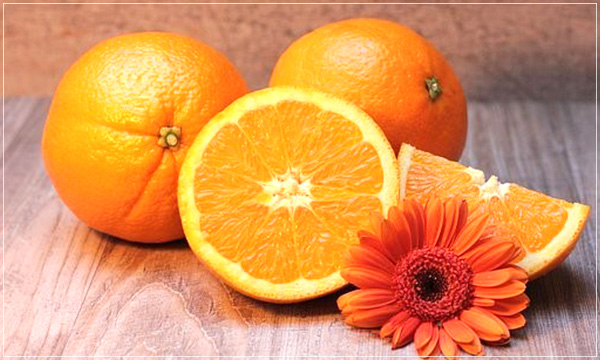Food
If you wish to export food to the Eurasian region, you must obtain a certification proving compliance with the applicable technical regulations. And the conformity mark (EAC) is affixed on the product, packaging or attached documents to export to that country.
Exporting to countries that have joined the Economic Union/Customs Union (Russia, Kazakhstan, Belarus, Kyrgyzstan, Armenia) requires EAC certification or GOST certification in accordance with the Technical Regulation of Customs Union (TRCU). Or exporting to other Eurasian countries such as Uzbekistan requires national certification.
Certification for food is divided into EAC, GOST and State Registration Certificate.
-
-

-
Eurasian Product Certification (EAC)
TRCU abbreviated for Technical Regulation of Customs Union and stands for the technical regulations of the Customs Union centered on Russia.
TRCU is an integrated certification system that began with the Eurasian Customs Union “EACU, Eurasian Customs Union” formed by Russia, Kazakhstan and Belarus in 2010, and entered into force in the Eurasian Economic Union “EEU, Eurasian Economic Union” in 2015.
Currently, the Eurasian Customs Union/Economic Union consists of five countries: Russia, Kazakhstan, Belarus, Kyrgyzstan, and Armenia, and TRCU certification follows the stipulated certification procedure according to the decision of the Eurasian Economic Commission.
The EAC mark is affixed on the certificate, which means Eurasian Conformity.1) TRCU EAC applied items (food)- TR СU 015/2011 On safety of grain
- TR CU 021/2011 On safety of food product
- TR СU 022/2011 On food products in terms of its marking
- TR CU 023/2011 On juice production of vegetables and fruits
- TR CU 024/2011 On oil and fat products
- TR CU 027/2012 On safety of certain types of specialized food products, including foods for dietary treatment and dietary preventive nutrition
- TR CU 029/2012 Requirements for the safety of food additives, flavorings and technological aids
- TR CU 033/2013 On safety of milk and dairy products
- TR CU 034/2013 On safety of meat and meat products
- TR CU 040/2016 On safety of fish and fish products
- TR CU 044/2017 On the safety of packaged drinking water, including natural mineral water
- TR CU 047/2018 On safety of alcohol products
2) EAC certificate type- This is a general product with relatively low risk, and some products can be issued certificate by only document review. Food is subject to the EAC DoC.
3) EAC certification information- Documents to be submitted : application form, product manual, HS Code, drawing, technical document, test report, certificate (Documents to be submitted must be written in Russian)
- Sample test : Depending on the product, it is decided whether to submit and test the sample.
- Factory inspection : None
- Duration : 2 weeks (Excluding sample delivery and sample testing period)
- Certificate validity period : up to 5 years (Serial Production Certification)
-
-
-

-
Eurasian Product Certification (GOST)
GOST is a national technical standard specified by the Euro-Asian Council for Standardization, Metrology and Certification (EASC), an abbreviation of GOsudarstvennyy STandart, which means federal standard in Russian.
Currently, GOST certificates issued by country and the subject of issuing certification bodies are different, so each country's GOST certificate is a different certificate, and it is classified as GOST-R in Russia and GOST-K in Kazakhstan.
After the introduction of the EAC, an integrated certification system that took effect between customs alliance countries, the proportion of GOST certification in the country has decreased significantly compared to the past. However, GOST certification is still required for import customs clearance for compulsory certification items that have not yet been negotiated between customs alliances.1) GOST applied items (food)After the introduction of the integrated certification system that took effect between the countries of the Eurasian Customs Union such as meat, fish, shellfish, vegetables/fruits, grains, citrons, alcohol/drinks, etc., the share of GOST certifications in Russia has decreased significantly compared to the past.
However, compulsory certification items that have not yet been negotiated between allies must be certified by GOST.
In addition, EAC-certified companies may additionally apply for a voluntary GOST certificate for customer promotion and trust.2) GOST certificate type- GOST DoC (Declaration of Conformity)
- GOST Voluntary
GOST Voluntary is a certificate that proves that the product has been made in accordance with applicable regulations and guidelines, although it is not mandatory to obtain GOST certification.
The additional acquisition of the GOST Voluntary Certificate will have the expected effect of more clearly demonstrating your management capabilities, thus securing the effect of increasing exports.3) GOST certification information- Documents to be submitted : application form, product manual, HS Code, drawing, technical document, Existing test report, Existing certificate (Documents to be submitted must be written in Russian)
- Sample test : Depending on the product, it is decided whether to submit and test the sample.
- Factory inspection : None
- Duration : 2 weeks (Excluding sample delivery and sample testing period)
- Certificate validity period : up to 3 years (Serial Production Certification)
4) Certification processTRCU EAC, GOST and State Registration Certificate certification process
- 1. Submit application form and product-related documents to the certification body
- 2. Document review
- 3. Check the type of certificate applied
- 4. Check the Sample test and factory inspection
- 5. Issuance of quotation and contract
- 6. If sample test is needed, test and test report is issued after sending sample
- 7. If factory inspection is necessary, proceed with the inspection
- 8. Draft certificate issuance and customer verification
- 9. Certificate issuance
-
-
-

-
State Registration Certificate
The hygiene registration certificate issued by each country has been integrated into one certificate according to the Decision of CU commission No.299 adopted in 2010 by the Customs Union.
One certificate can be used in all 5 countries of the Eurasian Customs Union (Russia, Kazakhstan, Belarus, Kyrgyzstan, Armenia).1) Food products to which national hygiene registration is applied- Mineral water, bottled water, soft drinks, alcohol-including low alcohol and tonic drinks
- Baby food, food for pregnant and breastfeeding women, dietary products, food for athletes, biologically active food additives, organic products, specialty foods including supplements
- Food additives (plant extracts, aromas, etc.)
- Food produced using genetically modified (transgenic) organisms
- Materials, devices, equipment and other technical products for use in drinking water supply
- Food contact products (excluding cutlery, tableware, and manufacturing equipment)
2) National hygiene registration certification information- Sample test : Depending on the product, sample submission and testing are decided.
- Factory inspection : Depending on the product, factory inspection may be required, and inspection M/D and fee are determined through quotation.
- Duration : 4~6 weeks (excluding sample sending and sample testing period)
- Validity period of certificate : 5 years
- Certification fee : It is different for each product, so consultation is required for accurate quotation.
-
-
-

-
IGC’s Competency
IGC provides a competitive and satisfactory service to its customers through several strengths.
- Providing competitive services based on knowledge and technology secured through certification projects in various fields
- Competitive certification fee
- Minimum time required through rapid certification service
- Provides One Stop Service for various system and product certifications
-
Related Services from IGC
01System certification
02Product certification (Europe, Eurasia, Americas, China, Southeast Asia)
03Product test
04Certification of audit qualifications
05Professional manpower training
